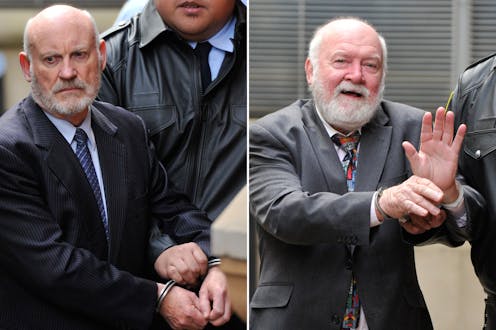Australians think our politicians are corrupt, but where is the evidence?
- Written by Yee-Fui Ng, Senior Lecturer, Faculty of Law, Monash University

A recent survey by Griffith University has found Australians’ trust in government is sliding. Trust and confidence in government fell in the last year to 46% at the federal and state levels.
There are also serious concerns about officials and politicians using their positions to benefit themselves or their families (62%), or favouring businesses and individuals in return for political donations or support (56%).
Worse still, there has been a 9% increase since 2016 in perceptions that federal members of parliament are corrupt (85% saying “some” are corrupt, 18% responding that “most/all” are corrupt).
What has caused the loss of public trust?
There is a public perception that a small elite is reaping large benefits in Australian society in terms of political influence and its flow-on dividends.
In Australia, the “game of mates” is flourishing. There’s now a revolving door in politics with many politicians, advisers and senior government officials leaving the public sector to become well-paid lobbyists.
Add to that the appointments of political “mates” to commissions, tribunals and cushy ambassadorships and the blatant misuse of parliamentary entitlements such as helicopter trips on taxpayer funds.
Political parties are also accepting millions of dollars in donations from lobbyists and others interested in influencing policy outcomes.
All of this adds to the perception that the system is rigged - and not in favour of the person on the street.
So, there is evidence of corruption in Australia?
The question is whether the perception of corruption is matched by reality.
Australia has fallen steadily in Transparency International’s global corruption index, from 8th place in 2012 to 13th this year. But even so, Australia is the 13th-least corrupt country in the world, which is still a respectable ranking.
More alarming is the fact that one in 20 Australian public servants said in a survey last year that they had seen a colleague acting in a corrupt manner. This figure has doubled in the past three years.
In the 1980s, there were incidences of large-scale corruption that rocked the country, culminating in the Fitzgerald Inquiry in Queensland and the WA Inc Royal Commission in Western Australia. These scandals led to the resignations and imprisonments of various former ministers and officials.
Although we have not sunk to such depths since then, state anti-corruption commissions, such as the NSW Independent Commission Against Corruption, have uncovered various instances of corruption in recent years. The NSW ICAC’s inquiries have led to the resignations of several politicians, as well as the conviction of former MP Eric Obeid.
Another classic case of corruption exposed by the ICAC led to the downfall of former Newcastle lord mayor, Jeff McCloy. McCloy famously bragged that politicians treated him like a “walking ATM” and admitted to giving two MPs envelopes of cash amounting to AU$10,000.
There is also a question about what we don’t know. Many more politicians may be getting away with corrupt activities because Australia doesn’t have a federal anti-corruption body.
Do we need a federal anti-corruption commission?
In one word: yes.
All states have anti-corruption bodies that have brought to light many indiscretions by politicians that would have otherwise remained hidden. The federal government is lagging behind in this crucial area.
At the federal level, there is no transparency in backroom dealings by those in power, coupled with lax rules that can be abused. In these circumstances, corruption can take root without us knowing about it. An anti-corruption agency would be a powerful deterrent against improper behaviour.
There is strong public support for a federal anti-corruption body in the Griffith University survey, with two-thirds (67%) of Australians in favour of this.
The Labor Party has pledged to introduce a federal integrity commission if it wins the next election.
There are also other activities that do not amount to corruption, but nevertheless shows an undue influence on government. Ideally, a federal anti-corruption commission should sit alongside a broader package of reforms that impose stronger rules on lobbying and political donations, as well as a code of conduct for MPs, policed by an independent commissioner.
This would form an interlocking political integrity system that would keep the politicians honest.
Our faith in government has been eroded by a lack of transparency and the perception that those in power are enjoying unfair benefits. Creating robust institutions, rules and processes that can act as checks and balances on governmental power is key to a vibrant democracy - and will be the first step towards rebuilding public trust.
Authors: Yee-Fui Ng, Senior Lecturer, Faculty of Law, Monash University





